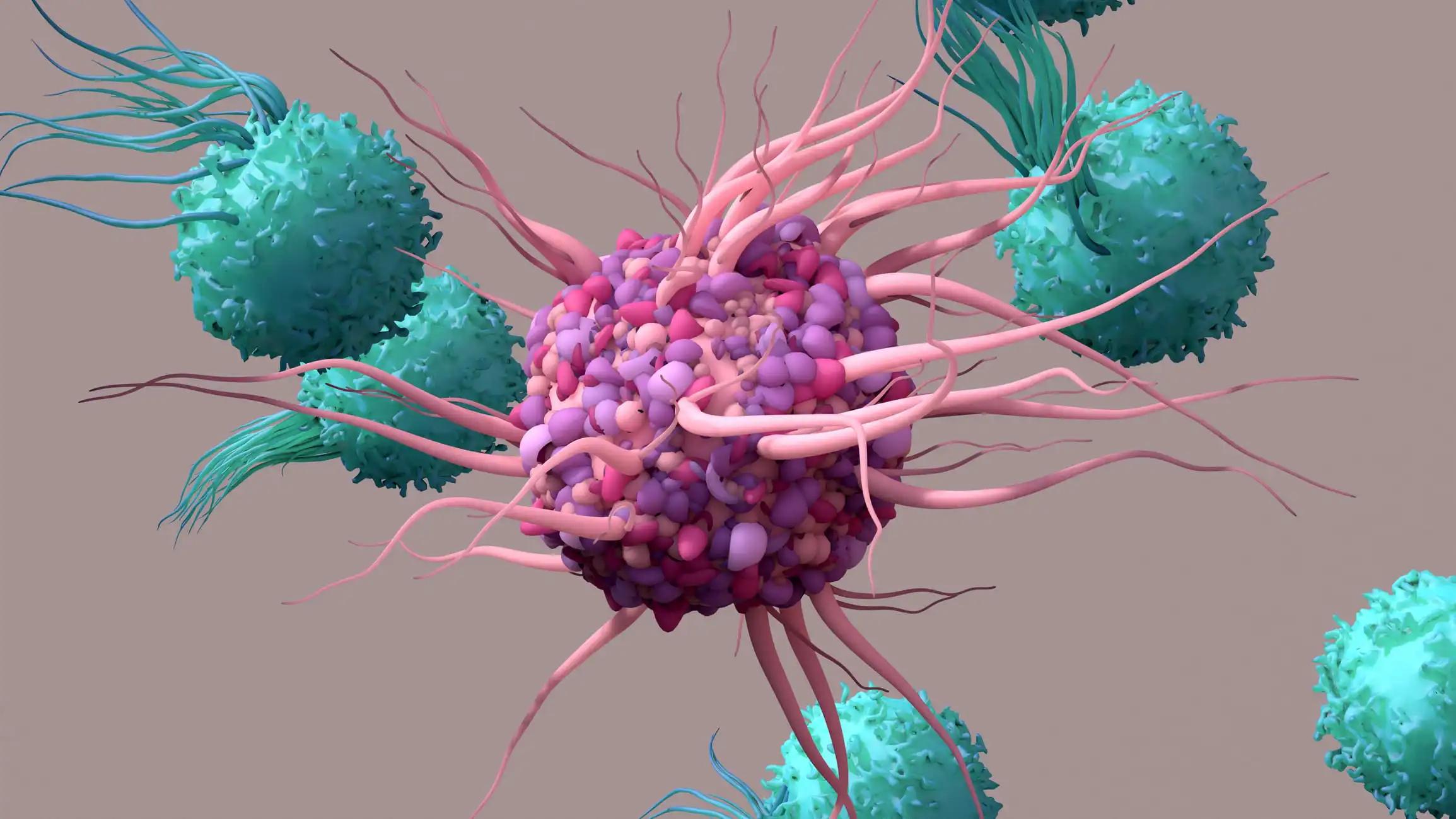KEY TAKEAWAYS
- The CHAARTED phase III trial aimed to characterize the prevalence and prognostic/predictive associations of germline PVs in mHSPC, focusing on DDR pathway mutations.
- The endpoints were estimated time to CRPC, clinical progression, and OS.
- The study found germline BRCA1/2 and DDR PVs common in mHSPC, BRCA2 PV linked to worse ADT outcomes. Genetic testing at diagnosis is warranted.
The high prevalence of germline pathogenic variants (PVs) in metastatic castration-resistant prostate cancer (mCRPC) has led to changes in genetic testing guidelines.
Researchers aimed to characterize the prevalence and prognostic/predictive associations of germline PVs in metastatic hormone-sensitive prostate cancer(mHSPC), focusing on DDR pathway mutations.
The study conducted whole exome sequencing using germline DNA obtained from patients(pts). They focused on 588 genes associated with prostate cancer and filtered the variants for quality, then examined the prognostic impact of these variants within each treatment group, either androgen deprivation therapy (ADT) or ADT plus docetaxel (ADT+D). We assessed time to CRPC (ttCRPC), time to clinical progression (ttClinPD), and overall survival (OS) using Kaplan-Meier analysis. Hazard ratios (HRs) and 95% confidence intervals (95% CIs) were determined through Cox models, considering biomarkers and treatment arms. They also performed a multivariable analysis that adjusted for metastatic timing and volume.
Of 137 pts, 135 had unique germline exomes that met the analysis criteria. Most had synchronous (66.7%) and high-volume (62.2%) disease. Within this biomarker cohort, adding docetaxel to ADT showed benefits (ttCRPC: HR 0.55, 95% CI 0.37-0.82; OS: HR 0.68, 95% CI 0.44-1.07). They identified 61 pathogenic variants (PVs) in 49 patients (36.3%) across 41 genes. The most frequently mutated gene was BRCA2 (6.67%). PVs were also found in DDR-associated genes, including PALB2 (1.48%), CHEK2 (1.48%), BRCA1 (0.74%), and PMS2 (0.74%), with an overall prevalence of 11.1% (15/135). Pts with BRCA2 PV on ADT alone had a shorter ttCRPC compared to those without the PV (UVA: HR 2.67, 95% CI 0.93-7.63, log-rank P=0.057; MVA: HR 2.59, 95% CI 0.91-7.39, P=0.074). No significant difference was observed in the ADT+D arm (UVA: HR 1.00, 95% CI 0.31-3.25, log-rank P=0.1). Supportive data was seen for ttClinPD in the ADT arm (HR 2.85, 95% CI 1.01-8.08, log-rank P=0.04). Metastatic volume and timing did not significantly correlate with germline BRCA1/2 or DDR PVs.
The study found germline BRCA1/2 and DDR PVs common in mHSPC, BRCA2 PV linked to worse ADT outcomes. Genetic testing at diagnosis is warranted.
Source: https://ascopubs.org/doi/abs/10.1200/JCO.2023.41.16_suppl.5082?role=tab
Clinical Trial: https://clinicaltrials.gov/study/NCT00309985
Anis Hamid, Tyler M Chinsky, Matias Vergara, Emily Grist, Gerhardt Attard, Eliezer Mendel Van Allen, Saud Aldubayan, and Christopher Sweeney. DOI: 10.1200/JCO.2023.41.16_suppl.5082 Journal of Clinical Oncology 41, no. 16_suppl (June 01, 2023) 5082-5082.



